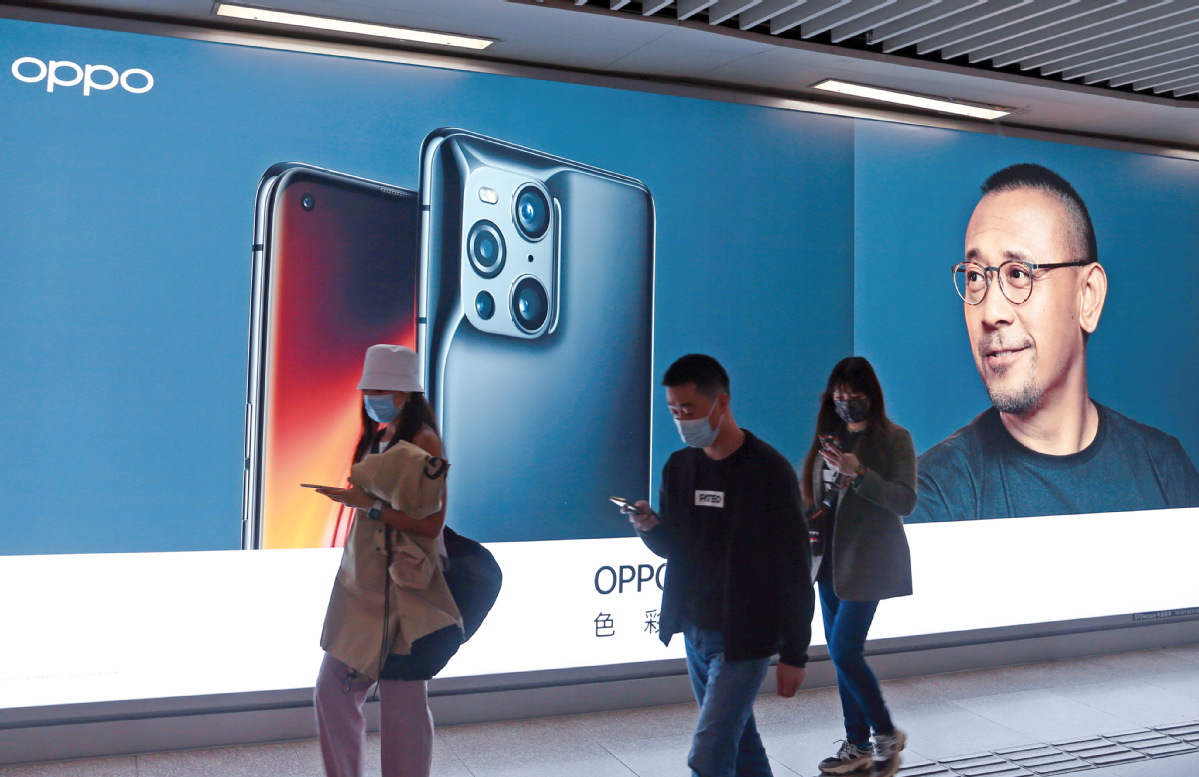Ruling in Oppo vs Nokia addresses patent royalties row


In a recent landmark ruling, the Chongqing Intermediate People's Court established a set of global FRAND (fair, reasonable and nondiscriminatory) royalty rates for SEP (standard essential patent) licensing for cellular handsets in Oppo vs Nokia. Regarding the 5G standard, $0.707 per unit was designated for Nokia SEPs for China and other developing economies, and $1.151 per unit for developed economies.
This ruling has a profound impact in that this is the first time for a Chinese court to make an SEP ruling on royalty rates in the cellular communications industry, imparting global implications, and particularly so in the wake of wide applications of 5G technologies in internet of things, autos and other industries, that can potentially provide a much expanded royalty base for 5G SEP licensing.
While most analysts hail this professionally delivered ruling, there has been some criticism from abroad, particularly regarding the superficial observation of a discounted rate in China. For example, a patent lawyer in New York, Mark Cohen, wrote recently: "Establishing a lower royalty rate for one set of countries as compared to another without a basis in patent law violates China's obligations to provide most favored nation treatment to the party asserting the patents, by providing lower damages in certain countries. Chinese courts should not treat one country more favorably than any other in its courts."
As an economic expert retained by Oppo throughout this lawsuit, I would like to address this territory-based discount issue in this article. First, the court's ruling is over royalties and royalty rates; they are not "damages". There is no negligence claim, nor damage claim in this suit. If Cohen bothers to read the verdict carefully, he should understand that. Second, the assertion that the royalty discount violates China's WTO MFN commitment is totally absurd in that the royalty discount is not about paying a foreign licensor less compared to a domestic licensor, nor about a lesser amount to be paid by a domestic licensee compared to a foreign licensee. It is about different treatment of countries, economies and territories where the royalty base originates. In fact, this ruling of differentiated royalty rates could also equally apply to, say Huawei as a licensor, collecting royalties here in China and, say, Apple as a licensee, that stands to pay royalties here in China. Nokia and Huawei are not treated differently, and nor are Oppo and Apple. So the whole discount issue has nothing to do with the WTO's MFN doctrine.
Now the practice of the territory-based discount provisions is not a Chinese court invention at all. In fact, this is a widely accepted practice in the industry that can be traced back to Western court rulings, such as TCL vs Ericsson in the United States and Unwired Planet vs Huawei in the United Kingdom. In Huawei vs Conversant in Nanjing, China, the court also accepted royalty discount based on territories. And further, in an administrative ruling regarding Qualcomm by China's competition authority, there also exists the territory-based discount. Based on my calculations, these four precedents average an approximate 60 percent discount for developing economies, certainly including China, which is in line with the discount rate prescribed by the Chongqing Intermediate People's Court this time.
Providing territory-based discounts is also a widely observed industry practice. As far as I know, Nokia's own rounds of offerings to Oppo during the royalty negotiation stage before they eventually see each other in court also contain provisions of territory-based discounts, as witnessed in the judge's verdict (page 57), citing a report submitted by Nokia's own expert witness.
From an economic perspective, there is a fundamental reason why territory-based discounts are justified and have been recognized by previous judicial and administrative rulings. This has to do with the widely accepted affordability argument that developing countries' lower income levels deserve to be taken into consideration when it comes to sharing the costs of investment returns for developing technologies reflected in SEP filings. More importantly, this also has to do with the patent intensity variation argument that hinges on the fact that more of the same SEP patents are filed in developed countries vis-a-vis developing countries. Royalties are usually collected in a country for the simple fact that a licensor has registered patents in that country. For example, Nokia files patents simultaneously in the US, in the EU, in China and presumably in some other less-developed economies as well, in order to collect royalties in these territories. But it is a well-established empirical observation that the number of patents filed in China and other developing economies is smaller than that in the EU, which provides the legal foundation for a discounted rate in China and other less-developed territories.
However, the actual ruling provides a more nuanced and balanced picture that actually works in Nokia's favor. The court's ruling, as a common practice, divides the global market into three rate territories, in which not all countries have relevant Nokia patents, or a significant number of patents comparable to China, but nevertheless Oppo still has to pay. That means it is quite likely that Nokia is actually collecting royalties in countries where it doesn't have any relevant 5G SEPs. For example, Oppo realizes some sales, maybe a few thousand handset sales per year in a small country in Africa, where Nokia has no patents at all. Nevertheless, Oppo is still paying royalties for these sales.
In conclusion, the Chongqing Intermediate People's Court's ruling is a well-thought, professionally delivered ruling. In particular, the territory-based discount aspect of the ruling adheres to common industry practices and will stand the test of time.
The writer is a professor at the University of International Business and Economics and VP — research and strategy at UIBE-Israel.
The views do not necessarily reflect those of China Daily.




































